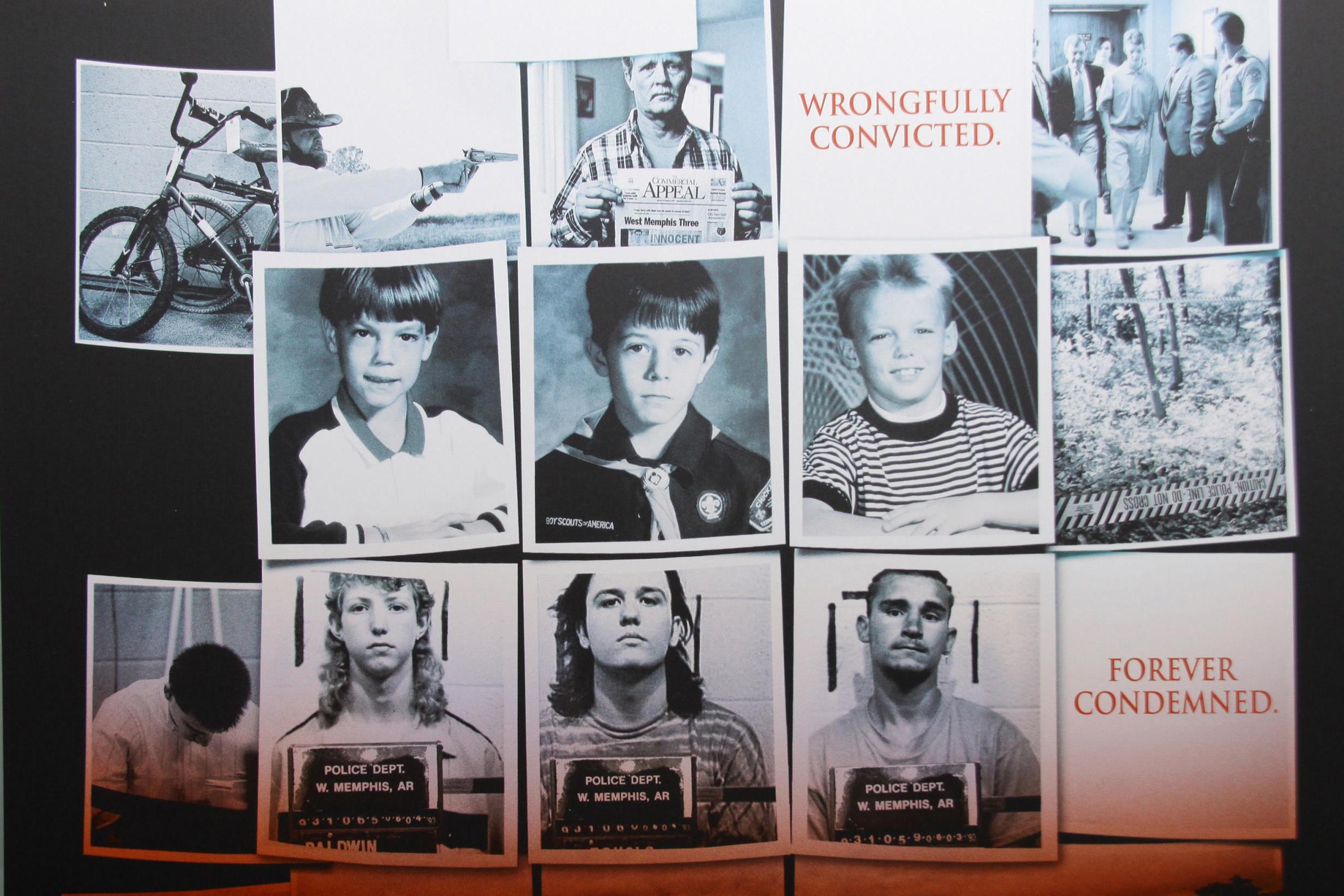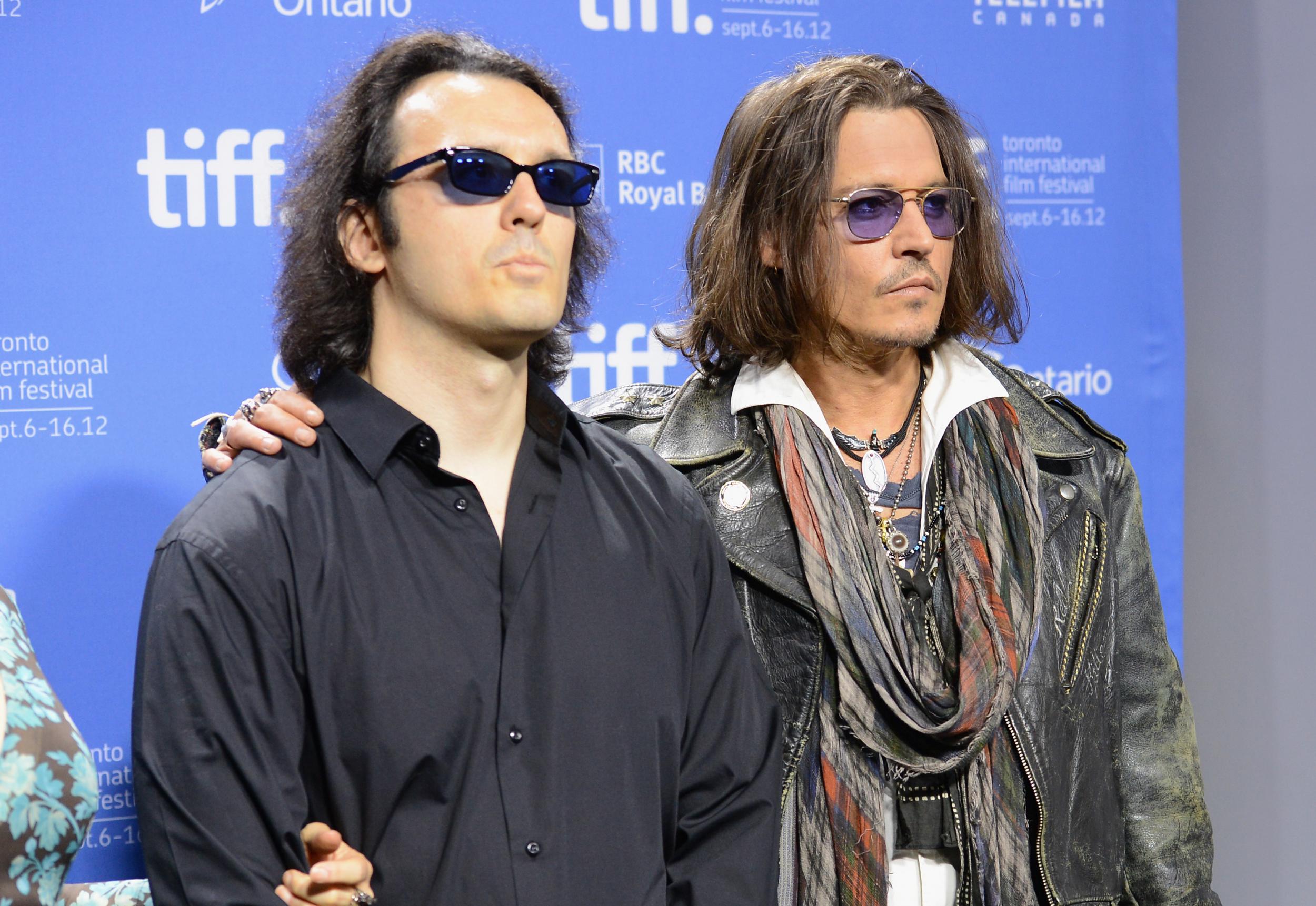The Independent's journalism is supported by our readers. When you purchase through links on our site, we may earn commission.
The West Memphis three: How a trilogy of HBO documentaries helped free three men convicted of murder
Standing out in small-town America has always been risky. For Damien Echols, Jason Baldwin, and Jessie Misskelley Jr, it meant life behind bars – and even death row. Clémence Michallon looks back on the case that began 27 years ago


On 5 May, 1993, three eight-year-old boys went missing in the city of West Memphis, Arkansas. Steve Branch, Michael Moore, and Christopher Byers were found the next day in a wooded area along the interstate highway, their bodies nude, bound, and apparently mutilated. One month later, three teenagers – Jessie Misskelley Jr, Damien Echols, and Jason Baldwin – were charged with murdering the three second-graders.
What followed is an 18-year saga that would see the West Memphis Three, as Misskelley, Echols, and Baldwin became known, get convicted of the crime despite maintaining their innocence. Rumours of a satanic crime spread around the community. All were convicted, an outcome bolstered in part by Misskelley’s controversial confession, which he ultimately recanted. Echols was sentenced to death; Misskelley and Baldwin received life sentences. The trio spend almost two decades behind bars and, in Echols’s case, on death row, before being freed in 2011 as part of a deal with prosecutors.
Over the years, their case became a cause célèbre, with high-profile advocates such as Johnny Depp, Winona Ryder, Eddie Vedder, and Peter Jackson publicly supporting the West Memphis Three. It also formed the basis of three documentaries that helped bring the fate of the three men back to the forefront, years before the world found itself engrossed by true-crime hits such as Serial, Wild Wild Country, and Making a Murderer.
Filmmakers Joe Berlinger and Bruce Sinofsky, who would eventually devote two decades of their lives to the West Memphis Three, starting working on the first film of the trilogy convinced of Echols, Misskelley and Baldwin’s guilt. “In the first film, there was no advocacy impulse that sent us down to West Memphis, Arkansas, originally,” Berlinger told The AV Club in 2012. “We thought we were making a film about disaffected youth, about kids who had done something rotten. Basically, we thought they were guilty because the local press reports coming out were very one-sided.”
But while shooting the first instalment, Berlinger and Sinofsky became aware of issues in the case – a realisation that would result in their eventual pledge to keep making movies about the West Memphis Three until they were freed. “Several months into the process, most notably when we finally got access to the West Memphis Three – although, they were not called the West Memphis Three back then – Bruce and I felt there was something not quite right,” Berlinger added. “The more we dug into it, the more we realised that this was not a case about guilty teens run amok. These guys have been wrongfully charged. We were still naive enough to believe that it would all work itself out at the trial.”
Paradise Lost: The Child Murders at Robin Hood Hills, the first chapter of the trilogy, was released by HBO in 1996, documenting Misskelley’s, Echols’s, and Baldwin’s trials. It informed the public of several few key elements, including that Misskelley had an IQ of 72 at the time of his questioning by authorities, and that his defence attorney maintained that his confession, in which he had implicated Echols and Baldwin, had been forced – a narrative naturally disputed by the prosecution. The documentary also includes abundant, often striking trial footage, such as clips of a teenage, baby-faced Echols attempting to explain the principles of Wicca to an Arkansas courtroom, and having to deny ever being part of “any type of human sacrifice”.
Pulitzer-winning critic Roger Ebert received Paradise Lost as such: “The film creates a vivid portrait of a subculture in which Satan is a central figure. Where did Damien, Jason and Jesse hear about satanic rituals? Mostly in church, it would appear. Some members of this community seem to require Satanism as part of their world view; they seize upon the devil to explain what dismays them. ...We leave the film unsure about who committed the murders, but convinced that an obsession with Satanism extends here far beyond the circle of defendants.”


Paradise Lost went on to win the Emmy for Outstanding Achievement in Informational Programming in 1997. Paradise Lost 2: Revelations, the first of two sequels, followed in 2000, documenting Echols’s appeal of his death sentence and examining more elements of the case. The film earned an Emmy nomination as well as this remark by Ebert: “Watching it, you feel like an eyewitness to injustice.”
The final film, Paradise Lost 3: Purgatory came out in 2012, five months after the three men’s release. It ends with extraordinary footage of Echols, Baldwin, and Misskelley entering Alford pleas and walking free for the first time in 18 years. An Alford plea is a peculiar judicial beast, in that it requires a defendant in a criminal case to enter a guilty plea while asserting their innocence.

Watch Apple TV+ free for 7 day
New subscribers only. £9.99/mo. after free trial. Plan auto-renews until cancelled.
ADVERTISEMENT. If you sign up to this service we will earn commission. This revenue helps to fund journalism across The Independent.

Watch Apple TV+ free for 7 day
New subscribers only. £9.99/mo. after free trial. Plan auto-renews until cancelled.
ADVERTISEMENT. If you sign up to this service we will earn commission. This revenue helps to fund journalism across The Independent.
“The reason [the Alford plea] exists is so that it sort of brings closure to a case and it prevents a state from being responsible for what they’ve done,” Echols told Katie Couric in 2014. “They don’t have to compensate you in any sort of way or ever admit that they made a mistake.”



Echols told Couric that despite those specificities, he didn’t have a hard time taking the plea, his health having begun to seriously deteriorate while on death row. Perhaps the most gripping moment in the entire Paradise Lost trilogy – and there are many – comes when a 34-year-old, freshly liberated Baldwin explains during a 2011 press conference that he “did not want to take the deal from the get-go”.
“However, they’re trying to kill Damien and sometimes you just have to bite the gun to save somebody,” adds Baldwin, who, unlike Echols, was sentenced to life behind bars but did not receive the death penalty in the case. Echols, 36, says in turn of Baldwin: “I want to publicly thank Jason too. Just to let him know that I do acknowledge what he did, that he did want to keep fighting. He didn’t want to take this deal in the beginning. And I recognise and acknowledge that he did do it almost entirely for me.” He then turns to Baldwin and adds: “Thank you” before being pulled into a hug.


Paradise Lost 3 was nominated for two Emmys as well as the Academy Award for Best Documentary Feature. Like its two predecessors, the documentary featured music by Metallica, one of the bands favoured by Echols – a fact that displeased the prosecution back in 1993, as did his taste for Stephen King novels. The band’s drummer and co-founder Lars Ulrich told Rolling Stone in 2011 that lending music to the project was “the least we could do”. “They were outsiders who didn’t fit into what that community wanted,” he added. “I could definitely identify with them. We all could.”
Echols and Peter Jackson co-produced another documentary, titled West of Memphis, directed by Amy J Berg and released in 2012, the same year as Paradise Lost 3. The Independent gave it one of several positive reviews, noting at the time: “Director Berg lays out the film with clarity and persuasiveness, and brings it as close to a happy ending as the tragic squalor of the case will allow.”
Now living in New York City, Echols devotes his time to magick, a spiritual practice. His memoir, Life After Death, came out in 2012 and became a New York Times Best-Seller. Baldwin co-founded the non-profit Proclaim Justice, which advocates for inmates who say they’ve been wrongfully convicted.
Echols recently spoke to the Wrongful Conviction podcast about what he learned about isolation while on death row, and how others can learn from his experience to better cope with coronavirus lockdown. “Don’t just worry the days away – seize them, and wring every ounce of opportunity out of them,” he wrote on his website. “On death row, I turned my cell into a monastery and used the time to learn, grow, and expand. We can all easily do this right now.”
Bookmark popover
Removed from bookmarks